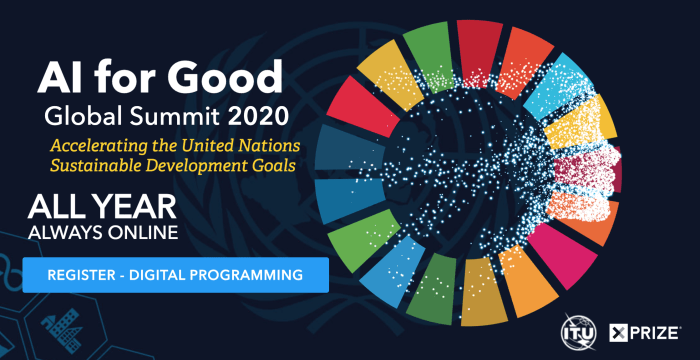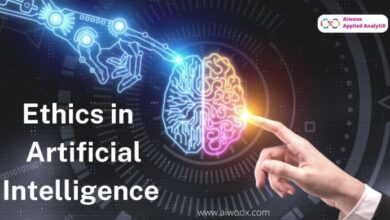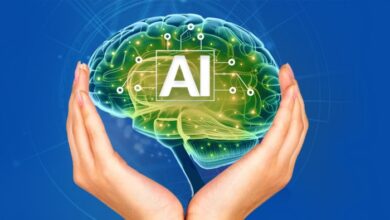
UN AI for Good Summit: Harnessing AI for a Better World
The UN AI for Good Summit is a groundbreaking platform where global leaders, innovators, and experts converge to explore the transformative potential of artificial intelligence (AI) for addressing the world’s most pressing challenges. This summit, a beacon of hope and progress, aims to harness the power of AI to achieve the Sustainable Development Goals (SDGs) and build a more equitable and sustainable future for all.
From leveraging AI for sustainable development to advancing healthcare and education, the summit provides a dynamic space for dialogue, collaboration, and action. It fosters a shared understanding of the ethical considerations and potential risks associated with AI, emphasizing the need for responsible and inclusive development.
Through its diverse range of initiatives, the UN AI for Good Summit empowers stakeholders to shape a future where AI serves as a catalyst for positive change.
The UN AI for Good Summit
The UN AI for Good Summit is an annual global gathering that brings together leading experts, innovators, policymakers, and stakeholders from various sectors to explore the potential of artificial intelligence (AI) to address the world’s most pressing challenges. It is a platform for collaboration, innovation, and action, fostering the responsible development and deployment of AI for the benefit of humanity.
The Mission and Goals
The summit aims to harness the transformative power of AI to accelerate progress towards the Sustainable Development Goals (SDGs). Its primary mission is to promote ethical and responsible AI development and deployment, ensuring that AI is used for good and contributes to a more just, equitable, and sustainable future.
The summit’s goals include:
- Identifying and promoting AI solutions that can address global challenges in areas such as healthcare, education, climate change, and poverty.
- Facilitating collaboration and partnerships among stakeholders from academia, industry, government, and civil society to accelerate AI innovation and impact.
- Developing and promoting ethical guidelines and best practices for AI development and deployment, ensuring that AI is used in a responsible and trustworthy manner.
- Raising awareness and fostering public dialogue on the potential and challenges of AI, promoting a broader understanding of its implications for society.
The Significance of the Summit
The UN AI for Good Summit plays a crucial role in shaping the future of AI by promoting a global dialogue on its ethical and societal implications. It provides a platform for stakeholders to come together and address critical issues related to AI governance, transparency, accountability, and inclusivity.
The summit’s focus on responsible AI development is particularly important in light of the growing concerns about the potential risks associated with AI, such as bias, discrimination, and job displacement. By bringing together experts from diverse backgrounds, the summit fosters a collaborative approach to addressing these challenges and ensuring that AI is used for the benefit of all.
Key Themes and Focus Areas
The summit typically covers a wide range of themes and focus areas related to AI for good. Some of the key themes include:
- AI for Health:Exploring how AI can revolutionize healthcare, from disease diagnosis and treatment to drug discovery and personalized medicine.
- AI for Climate Change:Leveraging AI to monitor and predict climate change impacts, develop sustainable solutions, and mitigate environmental risks.
- AI for Education:Utilizing AI to personalize learning experiences, improve access to education, and enhance teacher training.
- AI for Sustainable Development:Applying AI to address global challenges such as poverty, hunger, inequality, and access to clean water and energy.
- AI for Disaster Response:Using AI to improve disaster prediction, preparedness, and response, enhancing resilience and mitigating risks.
- AI for Human Rights:Ensuring that AI development and deployment are aligned with human rights principles, promoting inclusivity, fairness, and non-discrimination.
- AI for Governance:Exploring the role of AI in improving governance, transparency, and accountability, fostering more efficient and effective public services.
- AI for the Future of Work:Examining the impact of AI on the workforce, exploring strategies for reskilling and upskilling, and promoting a just transition to a future of work shaped by AI.
The Impact of the Summit, Un ai for good summit
The UN AI for Good Summit has had a significant impact on the global AI landscape. It has helped to raise awareness about the potential of AI for good and the importance of responsible AI development. The summit has also facilitated the development of new AI solutions and partnerships, accelerating progress towards achieving the SDGs.
The summit’s commitment to ethical and responsible AI development has also contributed to the growing movement towards AI governance and regulation.
AI for Sustainable Development Goals (SDGs)
The UN’s Sustainable Development Goals (SDGs) represent a global roadmap for a more sustainable and equitable future. Artificial intelligence (AI) has emerged as a powerful tool that can accelerate progress towards these goals, offering innovative solutions to some of the world’s most pressing challenges.
AI for Poverty Reduction
AI can contribute to poverty reduction by enabling better targeting of social programs, enhancing financial inclusion, and creating new economic opportunities. For example, AI-powered chatbots can provide financial literacy education and guidance to low-income individuals, while AI-driven algorithms can optimize the allocation of resources for poverty alleviation programs.
AI for Hunger Eradication
AI can help address food security by optimizing agricultural practices, improving supply chain management, and reducing food waste. AI-powered sensors and drones can monitor crop health, identify areas prone to pests or disease, and optimize irrigation systems. Machine learning algorithms can analyze market data and predict food shortages, enabling timely interventions to prevent hunger.
AI for Climate Change Mitigation
AI can play a crucial role in mitigating climate change by optimizing energy consumption, promoting renewable energy sources, and reducing carbon emissions. AI-powered smart grids can manage energy distribution more efficiently, while AI algorithms can analyze weather patterns and predict energy demand, enabling better integration of renewable energy sources.
Ethical Considerations and Risks
While AI offers immense potential for achieving the SDGs, it’s essential to consider the ethical implications and potential risks associated with its use. One key concern is the potential for AI systems to exacerbate existing inequalities if they are not developed and deployed responsibly.
Another risk is the potential for bias in AI algorithms, which could lead to unfair or discriminatory outcomes. Furthermore, the environmental impact of AI development and deployment needs to be carefully assessed to ensure that AI does not contribute to environmental degradation.
AI for Global Health and Well-being: Un Ai For Good Summit

The convergence of artificial intelligence (AI) and healthcare is ushering in a new era of personalized medicine, improved diagnostics, and enhanced patient care. AI’s ability to analyze vast datasets, identify patterns, and predict outcomes is revolutionizing the way we approach health and well-being.
AI in Healthcare Transformation
AI is rapidly transforming healthcare across various domains, from diagnosis and treatment to drug discovery and disease prevention.
- Diagnosis and Treatment:AI-powered systems can analyze medical images, such as X-rays, CT scans, and MRIs, to detect abnormalities and assist in early diagnosis. This enables faster and more accurate diagnoses, leading to more effective treatment plans. For example, AI algorithms can identify cancerous cells in mammograms with higher accuracy than human radiologists, potentially leading to earlier detection and improved survival rates.
- Drug Discovery and Development:AI is accelerating the process of drug discovery by analyzing vast amounts of data to identify potential drug candidates and predict their effectiveness. This can significantly reduce the time and cost associated with developing new treatments. For instance, AI-powered platforms have been used to identify promising drug candidates for diseases like Alzheimer’s and cancer.
- Disease Prevention:AI can help predict and prevent diseases by analyzing patient data and identifying risk factors. This enables proactive interventions and personalized recommendations for healthy lifestyles. For example, AI models can analyze genetic data to predict the likelihood of developing certain diseases, allowing for targeted preventive measures.
AI for Mental Health and Well-being
AI is emerging as a powerful tool for improving mental health and promoting well-being.
- Mental Health Assessment and Diagnosis:AI-powered chatbots and virtual assistants can provide mental health screening and support, allowing individuals to access help discreetly and conveniently. These tools can also analyze language patterns and other data to identify potential mental health issues, enabling early intervention.
The UN AI for Good Summit was a whirlwind of innovation and inspiration, and I was particularly excited to see the focus on using AI for social good. After all the intense brainstorming sessions, I was ready for a change of pace.
Luckily, New Orleans was just a short flight away, and I couldn’t resist exploring its vibrant culture and delicious cuisine. If you’re planning a trip, check out this New Orleans Louisiana travel guide for some helpful tips. Now back to the summit, I was truly impressed by the commitment of the participants to leverage AI for positive impact around the world.
- Personalized Therapy and Support:AI can tailor therapy and support to individual needs, providing personalized recommendations and interventions. This can help individuals manage their mental health conditions more effectively and improve their overall well-being. For example, AI-powered apps can offer personalized mindfulness exercises, relaxation techniques, and cognitive behavioral therapy (CBT) modules.
- Reducing Stigma and Increasing Accessibility:AI-powered tools can help reduce stigma associated with mental health by providing confidential and accessible support. This can encourage more individuals to seek help and improve their mental health outcomes. For instance, AI chatbots can offer anonymous support and guidance, reducing the fear of judgment and discrimination.
Ensuring Equitable Access to AI-Powered Healthcare
While AI holds immense potential for improving global health and well-being, it’s crucial to address challenges and opportunities related to equitable access.
- Data Bias and Fairness:AI models are trained on data, and if that data reflects existing biases, the models may perpetuate those biases. This can lead to disparities in access to AI-powered healthcare solutions, particularly for marginalized communities. It is essential to ensure that data used to train AI models is diverse and representative, mitigating bias and promoting fairness.
- Privacy and Security:AI systems often collect and analyze sensitive patient data, raising concerns about privacy and security. Robust safeguards and regulations are needed to protect patient data and ensure its ethical use.
- Accessibility and Affordability:AI-powered healthcare solutions can be expensive to develop and implement, potentially limiting access for low-income communities. Strategies are needed to ensure affordability and accessibility for all, including government funding, public-private partnerships, and innovative financing models.
- Infrastructure and Capacity Building:Access to reliable internet connectivity, trained personnel, and robust healthcare infrastructure is essential for the successful implementation of AI in healthcare. Investing in infrastructure development and capacity building is crucial to bridge the digital divide and ensure equitable access to AI-powered healthcare solutions.
The UN AI for Good Summit is all about harnessing the power of artificial intelligence for positive impact. While I was attending, I was struck by how many of the projects focused on sustainability. It made me think about my own efforts to be more eco-conscious, like experimenting with natural dyes for my clothing.
I’m sure there are AI solutions out there that could help us scale up these efforts and create a more sustainable future.
AI for Education and Inclusivity

AI is revolutionizing the education landscape, offering unprecedented opportunities to personalize learning, enhance access, and empower diverse learners. This section explores how AI can be a powerful tool for creating inclusive and equitable educational experiences.
Personalized Learning Experiences
AI algorithms can analyze vast amounts of data about student performance, learning styles, and individual needs to create personalized learning paths. Adaptive learning platforms leverage AI to adjust the difficulty level, pace, and content of lessons based on each student’s progress.
This personalized approach ensures that students receive the support they need to succeed, regardless of their background or learning style. For example, platforms like Khan Academy and Duolingo utilize AI to tailor their learning materials to individual students’ needs. These platforms adapt the pace and difficulty of lessons based on students’ performance, providing individualized feedback and guidance.
This personalized approach helps students learn at their own pace and master concepts more effectively.
Bridging the Digital Divide
AI can play a crucial role in bridging the digital divide and expanding access to quality education for underserved communities. AI-powered tools can translate educational materials into multiple languages, making them accessible to a wider audience. Additionally, AI can provide educational resources and support to remote areas with limited access to traditional learning environments.For example, the UNESCO’s “AI for Education” initiative focuses on leveraging AI to enhance educational access and quality in developing countries.
They are developing AI-powered tools for language translation, personalized learning, and teacher training to bridge the digital divide and empower learners in underserved communities.
Ethical Implications of AI in Education
While AI offers significant potential for improving education, it’s crucial to address the ethical implications of its use. Data privacy and algorithmic bias are key concerns. It’s essential to ensure that AI systems are developed and used responsibly, protecting student data and preventing discrimination.For instance, AI-powered assessment tools must be carefully designed to avoid biases that could unfairly disadvantage certain groups of students.
It’s crucial to ensure that these tools are evaluated for fairness and accuracy, and that their results are interpreted with caution.
AI for Governance and Transparency
The intersection of artificial intelligence (AI) and governance holds immense potential for transforming how governments operate, interact with citizens, and deliver services. By leveraging AI’s analytical power, governments can enhance efficiency, transparency, and citizen engagement, fostering a more responsive and accountable public sector.
AI for Enhanced Government Efficiency
AI can revolutionize government operations by automating repetitive tasks, streamlining processes, and improving decision-making.
- Automated Data Analysis and Reporting:AI can analyze vast amounts of data from various sources, identifying trends, patterns, and insights that inform policy decisions. This allows for more informed decision-making and evidence-based policy development. For example, AI can analyze crime data to identify hotspots and predict future crime trends, enabling police departments to allocate resources effectively.
- Citizen Service Optimization:AI-powered chatbots and virtual assistants can provide 24/7 citizen support, answering common inquiries, resolving simple issues, and directing citizens to the appropriate resources. This frees up human agents to handle more complex cases, improving overall service efficiency.
- Resource Allocation and Optimization:AI algorithms can optimize resource allocation by analyzing data on infrastructure needs, population demographics, and service demands. This enables governments to distribute resources more effectively, ensuring that they reach those who need them most.
AI for Transparency and Accountability
AI can play a crucial role in promoting transparency and accountability within government by providing tools for data visualization, citizen feedback mechanisms, and automated auditing.
- Data Visualization and Open Data Platforms:AI can be used to create interactive dashboards and visualizations that make complex government data accessible and understandable to the public. This empowers citizens to track government performance, identify areas for improvement, and hold officials accountable.
- Citizen Feedback and Engagement:AI-powered platforms can facilitate two-way communication between citizens and government officials. This allows citizens to voice their concerns, provide feedback on government services, and participate in policy discussions. For example, AI-powered platforms can analyze public sentiment on social media, providing insights into public opinion on various issues.
- Automated Auditing and Fraud Detection:AI algorithms can be trained to identify patterns and anomalies in financial data, helping to detect fraud and corruption. This can improve the efficiency of government audits and enhance accountability within government agencies.
AI for Combating Corruption
AI can assist in combating corruption by identifying patterns of suspicious activity, automating risk assessments, and providing tools for data-driven investigations.
- Predictive Analytics for Corruption Risk:AI algorithms can analyze large datasets to identify factors that contribute to corruption, such as weak governance structures, lack of transparency, and high levels of inequality. This allows authorities to proactively address these factors and prevent corruption from occurring.
- Automated Financial Transaction Monitoring:AI can monitor financial transactions for suspicious patterns, flagging potential cases of money laundering, bribery, and other forms of corruption. This helps authorities to identify and investigate corruption cases more effectively.
- Data-Driven Investigations:AI can assist investigators by analyzing large amounts of data, such as financial records, communication logs, and social media posts, to identify connections, uncover evidence, and build stronger cases against corrupt officials.
AI for Promoting Human Rights
AI can contribute to the protection and promotion of human rights by analyzing data to identify patterns of discrimination, providing tools for human rights monitoring, and assisting in the development of inclusive policies.
The UN AI for Good Summit is a great reminder of the potential of AI to solve global challenges. It’s inspiring to see how technology can be used for good, like connecting people through music. Speaking of which, did you know that SoundCloud launched on Xbox One ?
Now you can share your favorite tracks and playlists directly from your console. This kind of collaboration is exactly what we need to see more of as we continue to explore the ethical and practical applications of AI.
- Discrimination Detection and Prevention:AI can analyze data from various sources, such as police records, employment statistics, and social media posts, to identify patterns of discrimination based on race, gender, religion, or other factors. This allows governments to develop targeted interventions to address these issues.
- Human Rights Monitoring and Reporting:AI can be used to monitor human rights situations in real-time, analyzing data from various sources, including social media, news reports, and satellite imagery. This can provide early warnings of human rights violations and allow for more effective response mechanisms.
- Inclusive Policy Design:AI can assist in developing policies that are more inclusive and equitable by analyzing data on marginalized communities and identifying their specific needs. This can help to ensure that policies are designed to benefit everyone, not just those in the majority.
AI for Ensuring Fair and Equitable Justice Systems
AI can improve the efficiency, fairness, and accessibility of justice systems by automating tasks, providing tools for evidence analysis, and supporting decision-making.
- Automated Legal Research and Case Management:AI can assist lawyers and judges by automating legal research, analyzing case law, and managing case files. This can free up time for lawyers to focus on client interactions and strategy, while judges can use AI to analyze evidence and make more informed decisions.
- Risk Assessment and Predictive Justice:AI algorithms can be used to assess the risk of recidivism, helping to identify individuals who may require more intensive rehabilitation or support services. This can help to reduce crime rates and improve public safety.
- Fair and Equitable Sentencing:AI can help to ensure that sentencing is fair and equitable by analyzing data on sentencing patterns and identifying potential biases. This can help to reduce disparities in sentencing based on factors such as race, gender, or socioeconomic status.
Challenges and Risks of AI in Governance
While AI offers significant potential for improving governance, it also presents challenges and risks that need to be addressed.
- Bias and Discrimination:AI algorithms are trained on data, and if that data is biased, the algorithms will reflect those biases. This can lead to discriminatory outcomes, particularly in areas such as criminal justice, employment, and loan approvals.
- Privacy and Data Security:AI systems often require access to large amounts of personal data, raising concerns about privacy and data security. Governments need to ensure that data is collected and used ethically and responsibly, with appropriate safeguards in place to protect individual privacy.
- Transparency and Explainability:AI algorithms can be complex and opaque, making it difficult to understand how they arrive at their decisions. This lack of transparency can raise concerns about accountability and trust in AI systems.
- Job Displacement:The automation of tasks by AI could lead to job displacement in the public sector, raising concerns about the impact on employment and the need for retraining and upskilling programs.
- Political Manipulation:AI can be used to manipulate public opinion and influence elections. This raises concerns about the potential for AI to undermine democratic processes and erode public trust in government.
Collaboration and Partnerships for AI for Good
The potential of artificial intelligence (AI) to address global challenges is immense, but realizing this potential requires a collective effort. Collaboration between governments, organizations, and individuals is crucial to ensure that AI development and deployment are aligned with ethical principles and contribute to a more sustainable and equitable future.
Successful Partnerships and Initiatives
Successful partnerships and initiatives promoting responsible AI development demonstrate the power of collaboration in driving positive change. These partnerships leverage diverse expertise, resources, and perspectives to advance AI for good.
- The Partnership on AI (PAI) is a non-profit organization that brings together leading AI researchers, developers, and policymakers to discuss and address the societal implications of AI. The PAI promotes responsible AI development by fostering open dialogue, sharing best practices, and developing ethical guidelines.
- The Global Partnership on AI (GPAI) is a multi-stakeholder initiative that aims to promote responsible and inclusive development and use of AI. The GPAI brings together governments, organizations, and individuals from around the world to share knowledge, collaborate on research, and develop policies that support ethical and responsible AI.
- The AI for Good Foundation, a United Nations initiative, works to connect AI innovators with humanitarian organizations to develop solutions for global challenges. The foundation hosts annual summits and hackathons, bringing together experts from various fields to collaborate on projects that use AI to address issues such as climate change, disaster relief, and poverty.
Public-Private Partnerships
Public-private partnerships play a critical role in driving innovation and addressing ethical concerns in AI development. These partnerships combine the expertise and resources of governments, businesses, and non-profit organizations to accelerate progress and ensure that AI benefits all of society.
- The AI for Good Summit, hosted by the UN, is a prime example of a public-private partnership. The summit brings together governments, businesses, and civil society organizations to showcase and collaborate on AI solutions for global challenges.
- The National Institute of Standards and Technology (NIST) in the United States has established the AI Risk Management Framework, which provides guidance for organizations on developing and implementing AI systems in a responsible and ethical manner. This framework is the result of collaboration between government agencies, industry experts, and researchers.
Future Directions for AI for Good
The AI for Good Summit has highlighted the immense potential of artificial intelligence (AI) to address global challenges and advance the United Nations Sustainable Development Goals (SDGs). As we look toward the future, it is essential to consider the emerging trends and technologies that will shape the landscape of AI for good.
This section delves into the future directions of AI for good, exploring its potential impact on future generations and the critical need for ethical guidelines and regulations. We will also identify key areas where further research and development are essential to ensure that AI benefits all of humanity.
Emerging Trends and Technologies Shaping the Future of AI for Good
The field of AI is constantly evolving, with new advancements emerging at a rapid pace. These advancements hold significant promise for enhancing the positive impact of AI on society.
- Generative AI:Generative AI models, such as large language models (LLMs) and diffusion models, are capable of creating realistic and innovative content, including text, images, audio, and video. These models have the potential to revolutionize various fields, including education, healthcare, and entertainment.
For example, generative AI can be used to create personalized learning materials, generate synthetic data for medical research, and produce engaging and interactive content for entertainment purposes.
- Explainable AI (XAI):XAI focuses on developing AI systems that can provide transparent and understandable explanations for their decisions. This is crucial for building trust and accountability in AI systems, especially in sensitive domains like healthcare and finance. XAI can help users understand the reasoning behind AI decisions, enabling them to make informed choices and ensuring fairness and transparency.
- Federated Learning:Federated learning enables collaborative AI model training without sharing sensitive data. This approach allows multiple devices or institutions to train a shared AI model while keeping their data private. Federated learning has significant implications for privacy-preserving AI applications in healthcare, finance, and other sectors where data sharing is a concern.
- AI for Sustainability:AI is increasingly being used to address environmental challenges and promote sustainable development. For example, AI can be used to optimize energy consumption, monitor deforestation, and predict natural disasters. By leveraging AI for sustainability, we can contribute to a more environmentally responsible and sustainable future.
The Impact of AI on Future Generations
The impact of AI on future generations will be profound and far-reaching. AI has the potential to create a more equitable and prosperous world, but it also presents challenges that need to be addressed.
- Education and Skills Development:AI will transform the way we learn and work. It is essential to prepare future generations for a world where AI plays a significant role. This requires investing in education and skills development programs that equip individuals with the knowledge and skills necessary to thrive in an AI-driven economy.
Education systems need to adapt to incorporate AI-related subjects and develop curricula that foster critical thinking, problem-solving, and creativity.
- Ethical Considerations:As AI becomes more pervasive, it is crucial to establish ethical guidelines and regulations to ensure that AI is developed and used responsibly. Ethical considerations should address issues such as bias, fairness, privacy, and accountability. It is essential to ensure that AI systems are designed and implemented in a way that respects human rights and promotes social good.
- Job Market Transformation:AI is expected to automate many tasks currently performed by humans. This will lead to changes in the job market, with some jobs being replaced and new ones emerging. It is important to prepare for these changes by investing in retraining programs and providing support for workers who may be displaced by automation.
Policies and initiatives that promote lifelong learning and skills development will be essential for adapting to the evolving job market.
Key Areas for Further Research and Development
To ensure that AI benefits all of humanity, it is essential to prioritize research and development in key areas.
- Explainable AI (XAI):Further research is needed to develop more robust and reliable XAI methods that can provide clear and understandable explanations for AI decisions. This will enhance trust and transparency in AI systems and ensure that they are used ethically and responsibly.
- AI Safety and Security:As AI systems become more complex, it is essential to develop robust safety and security measures to prevent malicious use or unintended consequences. Research in areas such as adversarial machine learning and AI security is crucial for mitigating risks and ensuring the safe and responsible deployment of AI.
- AI for Global Health and Well-being:AI has the potential to revolutionize healthcare, enabling more accurate diagnoses, personalized treatments, and efficient drug discovery. Further research is needed to develop AI systems that can effectively address global health challenges, such as infectious diseases, chronic illnesses, and mental health issues.
- AI for Climate Change Mitigation:AI can play a crucial role in mitigating climate change by optimizing energy consumption, reducing emissions, and promoting sustainable practices. Further research is needed to develop AI-powered solutions for addressing climate change and transitioning to a more sustainable future.







